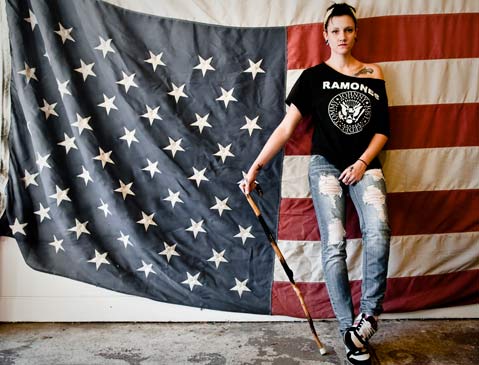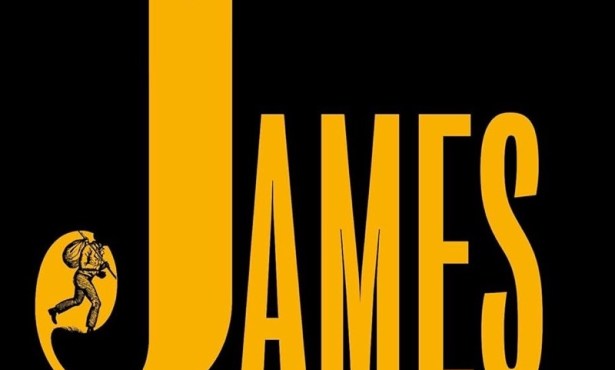Poster Girl for PTSD
Sara Nesson's Intimate Documentary Follows Iraq War Vet Robynn Murray

The plight of veterans returning home from the wars in Iraq and Afghanistan is a fixture on the documentary circuit these days, but none of these docs have shone such a tight and bright focus on post traumatic stress disorder (PTSD) as Sara Nesson’s Poster Girl. Following Army Sergeant Robynn Murray as she returns from a mind- and body-scarring tour of Iraq, Poster Girl shows the emotional, psychological, and bureaucratic turmoil faced by the former cover girl for Army Magazine. The 39-minute film—which the Fund for Santa Barbara is bringing to the Lobero Theater on Friday, March 4, for a free screening and Q&A with director and star—was nominated for the short-doc Academy Award (although Strangers No More took home the award). Nesson spent some time speaking about the film last week while enduring a manicure in preparation for the Oscar ceremony.
Of all the Iraq war vets, how did you zero in on Robynn?
I was filming with the guys, and they were really open with me and willing to talk about PTSD and what it was like to have it, but they weren’t showing it to me. I wanted to follow a veteran who would let me in and follow all of their ups and downs, highs and lows, and really show the face of PTSD.
Robynn was perfect for that. Her voice even seems to tremble constantly.
Her voice shivers and shakes. Every time I would ask her something serious, she would start talking in that voice, and I would lose it.
So her story really got to you personally?
I just fell in love with her. Her pain became my pain. We just became so close that she was like family to me. When anyone in your family is in pain, it affects your personally. She had this way of getting deep into my skin. That’s why I thought she would be such a powerful film subject.
There are lots of Iraq war documentaries coming out these days. What sets this film apart?
Mine focused on just one person. Robynn’s voice is so powerful and she’s so compelling that she really stands on her own. I didn’t need to share this story with anyone. Robynn is so good at conveying what it’s like to have PTSD. She let me follow her so intimately, so there’s a very deep portrait of one female, and, frankly, I don’t think that’s been told before.
You show Robynn and other vets making art out of their war gear. Was that cathartic?
That was the focus on my other film, Iraq Paper Scissors. It was very cathartic. That’s what got me so excited about the project, to see vets taking responsibility for their own healing. Even though they were waiting for benefits from the VA, it was really up to them. They weren’t waiting for someone to hold their hands. They had their own way to deal.
The making of this film must have also helped Robynn.
It was really hard for her, but I think in some way it also helped her process what she was going through. Having someone listening to her, she was able to process her own experiences at war and after. It’s hard to face the truth and face your own demons when no one is asking you and no one cares. But when someone looks you in the eye and puts a camera in your face and says, “How are you?” you think about it and you start to come up with answers that maybe even surprise yourself.
How is she now?
She just checked herself into rehab last summer to get herself off her pill addictions. Now she’s feeling much better, and is in a really stable place. She has a boyfriend, and they live together. They met in rehab. She’s really excited about all of this and she knows what an opportunity this is for her, compared to struggling alone. She’s pretty aware of her role in all of this and she’s owning it.
4•1•1
The Fund for Santa Barbara hosts a free screening of Poster Girl on Friday, March 4, 7 p.m. at the Lobero Theatre, followed by a Q&A with director Sara Nesson and star Robynn Murray. Visit postergirlthemovie.com for more info.



